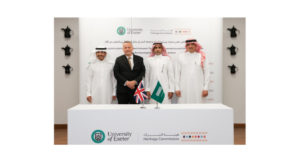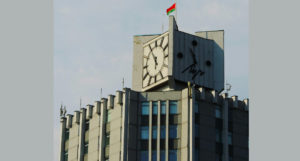Bank of England media coverage is an “effective” additional channel for accountability, study shows

The evidence will be designed to help regulators and parliamentarians craft new rules and better target their enforcement efforts
News coverage about the Bank of England is closely linked to the parliamentary oversight of the institution and to the Bank’s own account-giving activities, analysis shows.
Media articles are also more likely to be about the Bank’s policy decisions, especially during times of economic turbulence, according to the study.
Researchers found evidence of ‘reinforced accountability’, with coverage levels linked to both parliamentary hearings and the Bank’s own account-giving speeches.
The study, published in the journal Governance, was carried out by Dr Christel Koop, from King’s College London, and Dr Michele Scotto di Vettimo, from the University of Exeter.
They found more articles about the Bank were published when there are greater changes in bank rates, when new liquidity injections are announced, and when UK banks were bailed out as well as higher levels of unemployment.
The researchers examined 13,986 articles in The Times, The Guardian, and the Daily Mail about the Bank of England from May 1997 to the end of 2020. They compared this to information about various economic indicators and policy decisions.
They also used parliamentary hearings with bank officials and speeches by individual central bankers to assess whether media coverage magnifies both formal account-holding and voluntary account-giving of the Bank, a concept they call ‘reinforced accountability’.
Dr Koop said: “The Bank’s news coverage can be traced back to its policy decisions, especially when the latter respond to economic turbulence. Yet coverage is not as closely linked to the Bank’s performance on policy outcomes; nonetheless, it is traceable to both currency rate changes and unemployment levels.
“Both the number of parliamentary hearings and the number of central bank speeches were strongly and positively associated with coverage volume. This shows media outlets not only fulfill their watchdog role by covering the decisions and, to some extent, policy outcomes of the Bank, but also reinforce formal account-holding in parliament and voluntary account-giving by the Bank.”
Dr Scotto di Vettimo said: “When assessing the relative importance of the different variables on media coverage of the Bank the biggest impact on coverage volume were those related to policy decisions and to reinforced accountability. More specifically, though rare, decisions to bail out UK banks are the most important determinant of coverage volume followed by announcements of new liquidity injections. Speeches and hearings have roughly the same impact on coverage volume. The least impactful predictors are the changes in the bank rate, the changes in the pound-dollar exchange rate, and the unemployment level.
“Media accountability works fairly well in the case of the Bank. Coverage levels can be traced to key decisions and, to some extent, policy outcomes. There are good reasons to take reinforced accountability seriously: our findings suggest that it constitutes an important element of the media’s role in the accountability landscape. This is also encouraging from the perspective of ‘collaboration’ between the different forums and dimensions. Such collaboration may strengthen the accountability expectations of non-majoritarian institutions; expectations which can themselves contribute to the ultimate goal of careful and accurate decision-making.”



